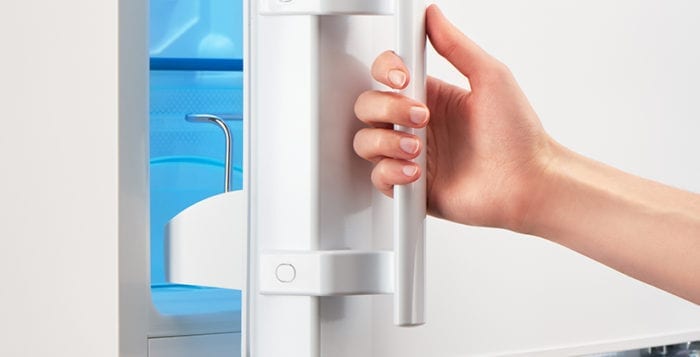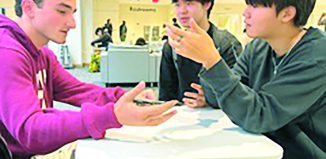Editorial: Open the freezer
Despite the hours we work to consistently get this paper into your hands and the local news to your eyes and your ears, we cannot be everywhere at once. Our budgets are ever-more limited, and our attention is pulled to all parts of our coverage areas. News outlets having to cut staff and resources means there are gaps of information. We do our best, and we hope you agree it is well worth the buck you paid for it, but perfect coverage is impossible in this day and age.
Something will move in to fill the gap — it’s the nature of these things. Surprisingly, that hole has been filled with something that was once used for college kids to learn who was dating whom, that being Facebook.
It’s amazing how much information is parsed and spread through individual Facebook pages, along with both private and public groups. You have community pages, moms pages, VFWs, even small municipalities like fire departments and villages all using their pages to get messages out. For us journalists, Facebook has become a tool to gather stories, sources and even occasionally to conduct interviews.
But for residents, Facebook is a razor-barbed rose. Disturbingly, to professional journalists who do their absolute best to get to the heart of the truth, the opposite is regularly proliferated through these same Facebook pages. Rumors fly across social media faster than any one person could hope to actually investigate each post.
At meetings, we often hear officials complain about the rumors spread online, though we journalists condemn any elected official who should ever truly complain about a community becoming engaged, looking at the overall low polling numbers across the spectrum. However,
this activism on the community’s side is not helped with false facts.
Taking journalism classes in college, students are often first made to take a media literacy course, which helps students identify false information when it’s presented to them. One phrase, which became a tagline at the media literacy course at Stony Brook University, was “open the freezer,” relating to a media report back to Hurricane Katrina in New Orleans back in 2005. One broadcast claimed the bodies of those who died during that traumatic storm and its aftermath had been stacked in a walk-in freezer as they were waiting for transport. However, the news report was false, there were no bodies in the freezer. The problem? The reporter never bothered to open the freezer and see
for themself.
Don’t take what is on Facebook for truth automatically, as each one of us can be a little journalistic even without a degree. Try researching online, try calling the people referenced in these stories. Don’t take any information presented for you at its face value. Skepticism is healthy for the eager news junkie.
Never let what you read on Facebook be the end to a story. Be sure to take a peek inside that proverbial freezer.







